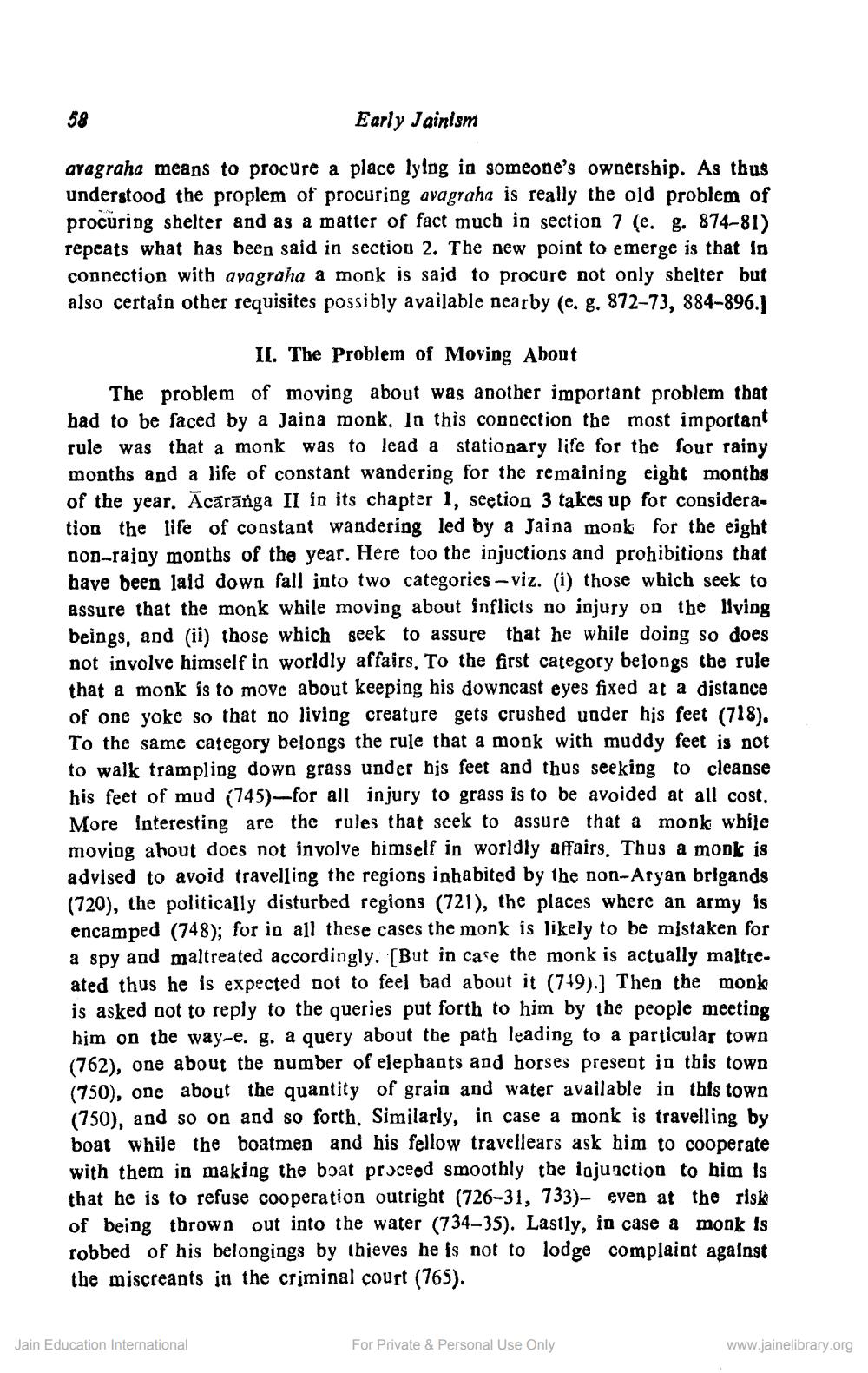________________
Early Jainism
avagraha means to procure a place lying in someone's ownership. As thus understood the proplem of procuring avagraha is really the old problem of procuring shelter and as a matter of fact much in section 7 (e. g. 874-81) repeats what has been said in section 2. The new point to emerge is that in connection with avagraha a monk is said to procure not only shelter but also certain other requisites possibly available nearby (e. g. 872-73, 884-896.]
58
II. The Problem of Moving About
The problem of moving about was another important problem that had to be faced by a Jaina monk. In this connection the most important rule was that a monk was to lead a stationary life for the four rainy months and a life of constant wandering for the remaining eight months of the year. Acaranga II in its chapter 1, seetion 3 takes up for consideration the life of constant wandering led by a Jaina monk for the eight non-rainy months of the year. Here too the injuctions and prohibitions that have been laid down fall into two categories-viz. (i) those which seek to assure that the monk while moving about inflicts no injury on the living beings, and (ii) those which seek to assure that he while doing so does not involve himself in worldly affairs. To the first category belongs the rule that a monk is to move about keeping his downcast eyes fixed at a distance of one yoke so that no living creature gets crushed under his feet (718). To the same category belongs the rule that a monk with muddy feet is not to walk trampling down grass under his feet and thus seeking to cleanse his feet of mud (745)-for all injury to grass is to be avoided at all cost. More Interesting are the rules that seek to assure that a monk while moving about does not involve himself in worldly affairs. Thus a monk is advised to avoid travelling the regions inhabited by the non-Aryan brigands (720), the politically disturbed regions (721), the places where an army is encamped (748); for in all these cases the monk is likely to be mistaken for a spy and maltreated accordingly. [But in case the monk is actually maltreated thus he is expected not to feel bad about it (749).] Then the monk is asked not to reply to the queries put forth to him by the people meeting him on the way-e. g. a query about the path leading to a particular town (762), one about the number of elephants and horses present in this town (750), one about the quantity of grain and water available in this town (750), and so on and so forth. Similarly, in case a monk is travelling by boat while the boatmen and his fellow travellears ask him to cooperate with them in making the boat proceed smoothly the injunction to him Is that he is to refuse cooperation outright (726-31, 733)- even at the risk of being thrown out into the water (734-35). Lastly, in case a monk is robbed of his belongings by thieves he is not to lodge complaint against the miscreants in the criminal court (765).
Jain Education International
For Private & Personal Use Only
www.jainelibrary.org




